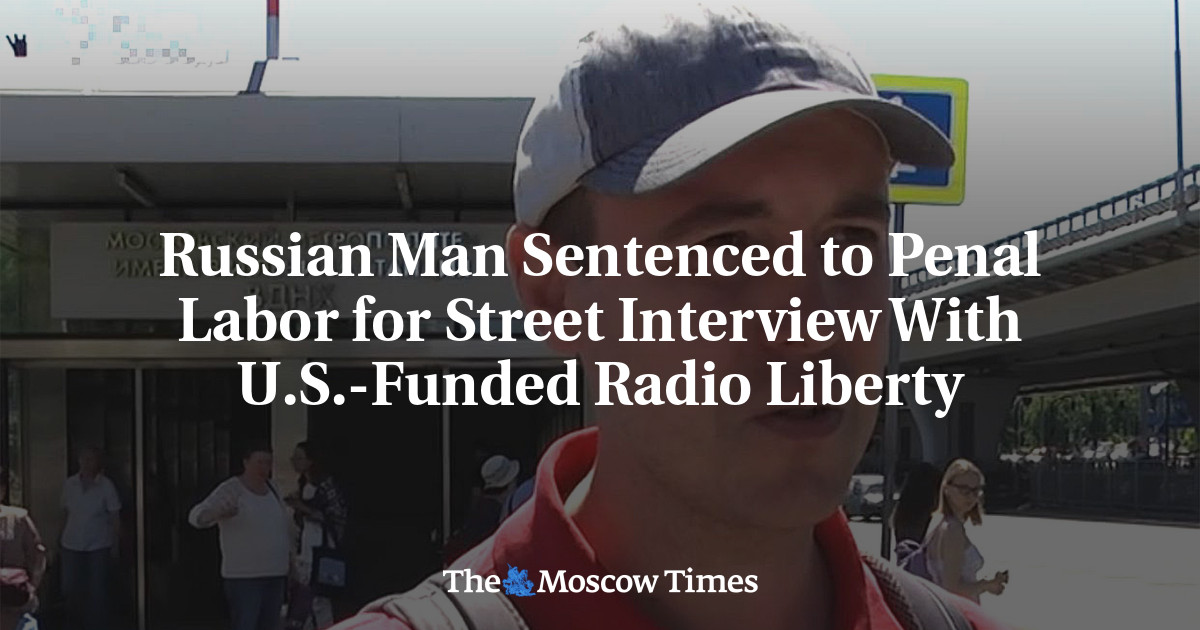
A Moscow resident has been sentenced to five years of correctional labor on charges linked to a street interview he gave to the U.S.-funded Radio Free Europe/Radio Liberty (RFE/RL) news outlet, the OVD-Info rights watchdog reported Monday.
Yury Kokhovets, 39, was approached by RFE/RL journalists in Moscow in July 2022 and asked whether a de-escalation of tensions between Russia and NATO member states was needed.
“Of course we need [a de-escalation], but it all depends on our government. It is our government that started it all…It is Russia who created all these problems,” Kokhovets told RFE/RL. “I don’t see any problems with NATO, it is not planning to attack anyone.”
“Our government says that it wants to fight nationalists, but it bombs shopping centers [instead]. Our military men from [the republics of] Buryatia and Dagestan shot civilians in [the Kyiv suburb of] Bucha for no reason at all,” he added.
Russian authorities opened a criminal case against Kokhovets months after the vox pop was published on accusations of spreading “fakes” about the Russian Armed Forces.
“I am satisfied with the [court’s] decision and won’t be appealing it,” Kokhovets told journalists after the hearing.
“I am happy that this chapter of my life is over…Life goes on. I am 39 years old and I have my whole life ahead of me.”
Russia banned the dissemination of “knowingly false information” about the military shortly after it invaded Ukraine in February 2022, a law that has been used to stamp out independent coverage of the war.
Prosecutors had requested a five-and-a-half-year prison sentence for Kokhovets, who pleaded partially guilty, denying that his statements were motivated by feelings of “political hatred.”
In addition to correctional labor activities, Kokhovets was also banned from administering websites for four years. He will also be required to give 10% of his income to the state for the next five years.
RFE/RL was labeled a “foreign agent” by the Russian authorities in 2017 and designated an “undesirable” organization in February 2024.
The “undesirable” designation effectively banned RFE/RL’s work inside Russia and criminalized engagement with the outlet, including sharing its content online.